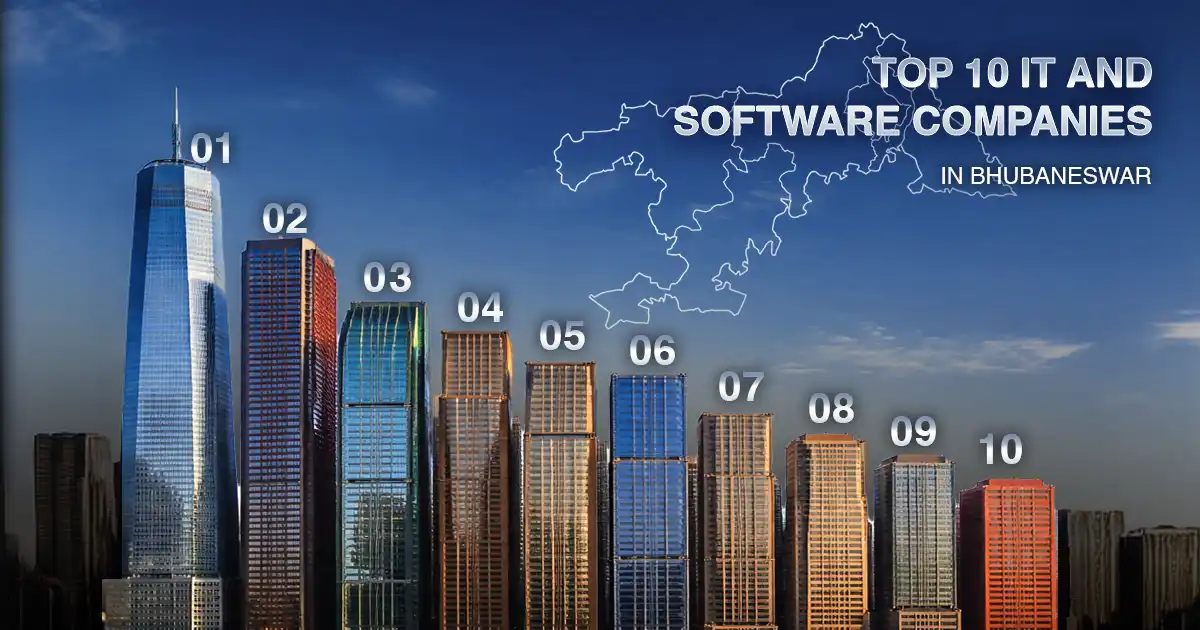
How to Get a Trade License for an Online Business?
Starting an online business in India can be exciting, but along with setting up your website and payment systems, you also need to ensure compliance with local regulations—like obtaining a Trade License. Even if you operate in the digital clouds, your business still needs a solid grounding. To secure this legal recognition and ensure operations run without any local hurdles, you need the all-important Trade License.
Think of the Trade License as your business’s official permission slip, issued by the local city council (the Municipal Corporation). This simple document confirms that your online activities, whether you are selling fashion, technology, or services, comply with all local health, safety, and zoning regulations.
Getting this local permit is crucial, not just for staying legal, but for building long-term trust with banks and partners. We will simplify the process, showing you exactly how to get a trade license and turn your digital dream into a fully compliant, thriving reality in India.
When does an Online Business Need a License?
Many entrepreneurs assume that selling online exempts them from obtaining a local trade license. This is not true! A Trade License is required because you are conducting a “trade” from a fixed place, even if it is your home or a warehouse.
For example, if you run an e-commerce business from your apartment in Bangalore, the BBMP (Bruhat Bengaluru Mahanagara Palike) still requires you to have a valid trade license for that address, and failure to obtain one can lead to penalties or legal notices.
You definitely need a Trade License (or its more common form, the Shop and Establishment License) when your online business has a physical base of operations, such as:
- You maintain an office: You run your e-commerce operations, marketing, and accounting from a dedicated office space, even if you never meet customers there.
- You store or manage inventory: You keep your products in a local warehouse, godown, or a specific part of your home designated for business.
- You hire employees: You employ people who work for your online company from your registered business location.
Since almost every online business falls into one of these categories, you must secure this local permit to operate legally.
What is the Procedure to Get a Trade License for an Online Business?
You can secure your Trade License through a straightforward online application process managed by your local Municipal Corporation.
This guide outlines the general procedure to efficiently obtain the necessary local permit for your online business.
Step 1: Identify the Local Authority and Register Online
Your first action is to determine which municipal body has jurisdiction over your business premises and then create a user account on their official e-governance portal.
- You must visit the official website of the Municipal Corporation, like the website of BMC (e.g., GHMC, BMC, etc.) that governs your business location.
- Navigate to the “Citizen Services” or “Business Registration” section and select the Trade License option.
- Register your basic contact details to establish a secure login, necessary for all future online submissions and tracking.
Step 2: Fill Out the Application Form
Once logged in, complete the digital form, correctly classifying your e-commerce business under the required trade category.
- Select the precise business category for your operations, typically classified as a ‘Shop’ or ‘Commercial Establishment’ in the system.
- Input all mandatory details, including the business name, the full registered office address, and a clear description of the goods or services offered online.
- Ensure that the business address provided for the local license matches your official address proof documents exactly.
Step 3: Upload all Required Documents
You prepare and upload clear, legible scanned copies of all essential documents to verify the legitimacy of your business and its location.
- Upload core documents like the PAN Card, Aadhaar Card, and the firm’s Business Registration Certificate (e.g., Certificate of Incorporation, Partnership Deed).
- Submit legally valid proof of premises, which is usually the latest property tax receipt or the rental agreement, alongside the property owner’s No Objection Certificate (NOC).
- Include passport-sized photographs of the applicant and any other statutory documents required by the local body.
Step 4: Pay the License Fee Online
Following the successful submission of your application and documents, you proceed to the mandatory fee payment stage.
- The system calculates the Trade License fee, which varies based on your business type, size, and location as per municipal guidelines.
- Complete the payment electronically through the portal’s secure gateway (net banking or credit/debit card) and download the payment receipt.
Note down the generated Unique Application Number (or Tracking ID), which is critical for future reference and checking the application status.
Step 5: Verification, Inspection, and Issuance
This is the final administrative phase where the local authorities process your application and officially grant the Trade License Certificate.
- A municipal officer will perform an internal document verification, often followed by a potential site inspection of the registered business premises.
- The authority confirms that your business complies with all local zoning regulations and health/safety norms.
- Upon final approval, your official Trade License will be issued, which you can download and print directly from the online portal.
What are the Essential Documents Required to Apply for a Trade License for an Online Business?
Having these documents scanned and ready will prevent application delays:
| Document | Purpose / Requirement | Notes / Common Mistakes |
| Identity Proof of Applicant | Verifies the identity of the proprietor/business owner. | Aadhaar, PAN, Voter ID; ensure document is valid and clearly scanned. |
| Address Proof of Applicant | Confirms the residential address of the proprietor/business owner. | Utility bills, Aadhaar, Passport; a mismatch with the application can lead to rejection. |
| Proof of Business Address | Confirms the location of the business or operational site. | Rent agreement, electricity bill, property tax receipt; NOC from landlord required if rented. |
| Business Registration Certificate | Validates the legal existence of the business. | Partnership deed, certificate of incorporation, LLP agreement; ensure correct business name. |
| Layout Plan / Site Plan | Shows the physical setup of a business, warehouse, or office. | Include accurate measurements; incorrect or missing plans can delay approval. |
| No Objection Certificate (NOC) from Landlord | Required if the property is rented. | Must be signed, stamped, and preferably notarized; a missing NOC is a common rejection reason. |
| Previous Trade License | Needed if renewing or amending an existing license. | Include original or digital copy; check expiry dates to avoid penalties. |
| Additional Permits / Licenses | Sector-specific compliance requirements. | Health, fire, and environmental clearances, depending on business type; check municipal requirements. |
| Bank Account Details | Confirms financial legitimacy and for fee payments. | Include a cancelled cheque or a passbook copy; the name on the bank account should match the applicant/business. |
| Photograph of Applicant | Validates the legal existence of the business. | Partnership deed, certificate of incorporation, LLP agreement; ensure correct business name. |
| GST Certificate (if available) | Provides a visual identity for official records. | Recent passport-sized photo; blurry or old photos may be rejected |
| PAN of Business / Entity | Verifies business activity and tax registration. | Increasingly required; ensure GST number matches business records. |
| For Online / E-commerce Businesses | Proves active business operations. | ITR or bank statements may be requested; incomplete documents can delay approval. |
Types of Trade Licenses in India
For online entrepreneurs, the term ‘Trade License’ often refers to a few specific local permits:
| Type of Trade License | Description | Applicable Businesses | Issuing Authority | Validity |
| Municipal / Local Trade License | A license issued by the local municipal corporation or urban local body for operating a business within its jurisdiction. | All businesses operating in a municipal area, including shops, offices, and warehouses. | Municipal Corporation / Municipality / Gram Panchayat | Usually 1 year |
| Shop & Establishment License | Regulates working hours, wages, holidays, and employee rights. Often required along with a trade license. | Retail shops, offices, service providers | State Labour Department / Municipal Corporation | Varies by state, usually annual |
| Industrial / Manufacturing License | Required for factories, workshops, or manufacturing units dealing with production. | Factories, industrial units, workshops | Local Municipal Corporation / District Industrial Officer | 1–5 years, depending on state rules |
| Wholesale / Trading License | For businesses involved in bulk trading or distribution of goods. | Wholesalers, distributors, suppliers | Municipal Corporation / Trade Licensing Authority | Typically 1 year |
| Service Provider License | License for businesses offering services rather than goods. | IT services, consulting, repair services, and salons | Local Municipal Authority | Usually 1 year |
| Home-Based / Online Business License | For businesses operating from home or online without a physical shop, if inventory, warehouse, or dispatch is involved. | E-commerce sellers, freelancers with inventory | Municipal Corporation / Local Body | Usually 1 year |
| Special / Sector-Specific License | Licenses are issued for specialized sectors like food, pharma, hazardous goods, or health-related businesses. | Food outlets, pharma shops, and chemical traders | Municipal / State Authorities | Varies by sector |
What are the Eligibility Criteria to Obtain a Trade License for an Online Business?
Obtaining a trade license for an online business in India ensures that your operations comply with local laws and municipal regulations. The eligibility criteria focus on the legal capacity of the applicant, the nature of the business, and its location, helping municipalities maintain safety, health, and order in commercial activities.
Primary Eligibility Criteria
The applicant (individual or business entity) must satisfy the following fundamental conditions:
- Minimum Age: Applicant must be at least 18 years old.
- Legal Standing: No prior criminal record; business activity must comply with Indian and local laws.
- Business Commencement: License should be applied for before starting operations or within 30 days of commencement (varies by state).
Criteria Related to Business Location and Compliance
Since an online business still has a physical base (office, warehouse, or home office), the location is strictly scrutinized for compliance with local zoning and safety norms:
- Minimum Age & Legal Standing: The applicant must be at least 18 years old, have no prior criminal record, and conduct a legally permissible business.
- Jurisdiction: The business premises must fall under the jurisdiction of the relevant Municipal Corporation or local body. For example, in Mumbai, the relevant authority is the Municipal Corporation of Greater Mumbai (MCGM).
- Zoning Compliance: The location must comply with local zoning laws. Offices are usually permitted, but certain manufacturing or high-risk activities are restricted to commercial or industrial zones.
- Nature of Business / Legal Permissibility: The type of trade (e.g., general retail, food products) must fall within categories for which the municipal body can issue a license.
- Health & Safety: Businesses must not create nuisance or health hazards—a common reason for municipal rejection.
- Timeframe for Registration: Some states, such as Maharashtra and Karnataka, specifically require registration within 30 days of commencing operations.
Note: For specific businesses like those dealing with food products (e-commerce food operators), you must also be eligible for and possess an FSSAI License (Food Safety and Standards Authority of India), as the Trade License complements other statutory requirements.
What is the Process for Renewal, Amendment, and Cancellation of a Trade License for an Online Business?
For online businesses, managing the Trade License involves three key administrative actions: Renewal (mandatory yearly), Amendment (for changes in business details), and Cancellation (for closing the business).
1. Renewal of Trade License
A Trade License is typically valid for one financial year and must be renewed annually to ensure your business remains legally compliant with local municipal regulations.
Key Procedures
Renewal Window: Applications must usually be filed within 30 days before expiry, often between January 1 and March 31 of the financial year.
Online Process: Renewal is generally completed through the Municipal Corporation’s e-governance portal. You can get the detailed explanation in the blog: How to Renew Trade Licence Online?
Documentation: Commonly required documents include the original license, the latest property tax receipt, and the previous year’s challans.
Inspection: Authorities may conduct a site visit, especially if there were past compliance issues.
Penalty: Delayed renewal attracts late fees, and continued default may invite legal action or closure.
2. Amendment/Modification of Trade License
Any significant change in your online business’s details must be updated with the issuing municipal authority by filing an Amendment Application.
Common Amendments
- Change in Business Name: If the legal or trade name of the online business is modified.
- Change in Business Address: This is the most common amendment for online businesses (e.g., shifting the registered office or warehouse).
- Change in Business Activity/Trade Type: If you significantly alter the nature of goods sold (e.g., shifting from electronics to food products).
Procedure
- You must apply to the relevant municipal authority using the designated form for Correction/Change of Trade License.
- You need to submit the Original Trade License copy along with legal proof of the change (e.g., a new lease agreement for an address change, a new Certificate of Incorporation for a name change).
- The authorities will verify the documents and may levy a small amendment fee before issuing a modified Trade License reflecting the updated details.
3. Cancellation/Surrender of Trade License
If you decide to discontinue or close down your online business entirely, you must officially surrender or cancel your Trade License to avoid any future compliance liabilities.
Procedure
- You should apply for Trade License Cancellation to the municipal authority. Some cities provide an online option for ‘Closure of Trade License.’
- The application for closure must be accompanied by a formal declaration or a Board Resolution (if a company) stating the decision to discontinue the trade.
- The critical condition for cancellation is that the business must clear all outstanding dues, including arrears of license fees, property taxes, and any applicable penalties up to the date of submission.
- The license holder must typically surrender the original paid-up Trade License Certificate along with the final payment receipt.
Consequence of Non-Cancellation: If you cease business operations without formally cancelling the license, the municipal corporation will continue to raise demand notices and accrue annual renewal fees, making you liable for back-dated penalties.
In certain states, failing to cancel the license can also trigger additional property tax liabilities or even legal notices. For instance, in Bangalore, the BBMP keeps charging annual trade license fees until a formal closure application is submitted.
For guidance on properly cancelling your trade license and avoiding penalties, contact an expert today.
Final Thoughts
Even for a fully digital business, a Trade License is essential—it provides legal recognition, ensures compliance, and builds customer trust. By completing the online application, paying the prescribed fee, and verifying your business address, you establish your venture as a responsible and authorized e-commerce trader.
A Trade License not only assures customers of your legitimacy but also opens doors to opportunities such as funding and official partnerships. While the process may feel traditional, it forms the foundation for long-term success. Submit the necessary documents, secure your certificate, and operate confidently within legal guidelines.
Frequently Asked Questions
A Trade License is generally mandatory if your online business operates from a physical location, such as a home office, warehouse, or administrative hub. It is issued by the local Municipal Corporation based on your business’s physical address to ensure compliance with zoning, safety, and health standards. It legalizes your operations within that civic area.




